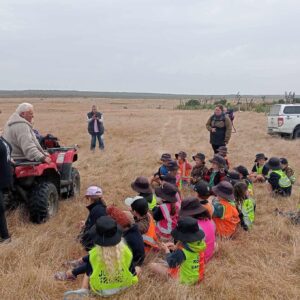



Australia is home to more than 250 distinct Aboriginal and Torres Strait Islander Nations – diverse geo-cultural communities, each with their own traditional languages, customs and connections to Country/place.
Today, Aboriginal and Torres Strait Islander people continue to identify with the unique groups that they have belonged to since time immemorial. Australia’s colonial history has caused displacement of Aboriginal and Torres Strait Islander peoples from their Traditional Lands, as well as separation of families and communities. This has resulted in complex and varied definitions of community.
According to The State of Reconciliation in Australia report (2016), building mutually trusting and respectful relationships between Aboriginal and Torres Strait Islander communities and the wider Australian community is integral to fostering a stronger future of reconciliation (the strengthening of relationships between Aboriginal and Torres Strait Islander peoples and non-Indigenous peoples, for the benefit of all Australians) across the nation. While the Australian Curriculum mandates that all Australian students learn about Aboriginal and Torres Strait Islander cultures and perspectives,
there is limited guidance on how to build relationships with local Aboriginal and Torres Strait Islander communities.
Narragunnawali: Reconciliation in Education, a Reconciliation Australia initiative, supports Australian schools and early learning services to develop environments that foster a higher level of knowledge and pride in Aboriginal and Torres Strait Islander histories, cultures and contributions. By creating a Reconciliation Action Plan (RAP) using the Narragunnawali online platform, schools and early learning services can be supported to build respectful and trusting relationships with community through a formal statement of commitment to reconciliation. Narragunnawali (pronounced narra-gunna-wally) is a word from the language of the Ngunnawal people, meaning alive, wellbeing, coming together and respect.
Narragunnawali is a word from the language of the Ngunnawal people, meaning alive, wellbeing, coming together and respect.
Whether or not a school has Aboriginal and Torres Strait Islander students or children, building relationships is an important part of creating learning environments that demonstrate respect for, and pride in, local Aboriginal and Torres Strait Islander histories, cultures and contributions. These culturally respectful environments ultimately enhance learning experiences for all students and children.
The responsibility for fostering pride in and respect for Australia’s First Peoples, and for increasing understanding of Aboriginal and Torres Strait Islander histories and cultures, must be a shared one. It can only happen when schools and early learning services become more knowledgeable about, engaged with, and respectful of, the experiences and aspirations of their local Aboriginal and Torres Strait Islander communities.
Aboriginal and Torres Strait Islander community members can contribute powerfully to school and early learning services’ reconciliation journeys by helping to ensure that they are meaningfully contextualised, and as culturally safe and responsive as possible. Building mutually beneficial relationships between Aboriginal and Torres Strait Islander communities and education settings may give a powerful voice to Aboriginal and Torres Strait Islander peoples in a setting where these have been historically marginalised.
Strong examples of reconciliation in education demonstrate an active awareness of the diversity of Aboriginal and Torres Strait Islander identities, histories and cultures both within and across communities. Positive relationships are transformational, rather than short-term transactional relationships. These mutually beneficial relationships are based on deep conversations, consultations and collaborations with local Aboriginal and Torres Strait Islander community members.
“Reconciliation is about relationship-building . . . It’s bringing families and parents along on the journey so they can see the importance of education.”
Geraldine Atkinson
Geraldine Atkinson, a Bangerang/Wiradjuri woman and highly respected educator, says, “Reconciliation is about relationship-building. So it’s important that this journey isn’t just for non-Indigenous [people], but for our Aboriginal and Torres Strait Islander families and communities as well. It’s bringing families and parents along on the journey so they can see the importance of education. And they can also learn with their children.”
Anyone can join the Narragunnawali community to access a range of free resources. Whether you’re a teacher, student, parent or community member, in Australia or elsewhere, visit reconciliation.org.au/narragunnawali to find out more.
Related Posts

After a decade away from the whiteboard, educator and comic artist Indira Neville has returned to teaching – and she’s drawing about it. In this comic series, Indira shares a glimpse into her days at school, capturing what’s changed, what’s stayed the same and what she never saw coming.

From making lanterns and sharing kai to discos, art auctions and kapa haka, there are many different ways to celebrate Matariki and Puanga. Ako asked five kura from around Aotearoa how they mark this special time of year.

Working at a school on the Chatham Islands demands resilience, innovation and a deep sense of connection. Kirsten McDougall spoke with staff at Te One School to find out what it means to educate in one of the most remote communities in Aotearoa.

It’s often said that a nation’s budget reflects its values. If that’s true, then Budget 2025 tells us undeniably that children, especially our youngest tamariki, are not a priority.